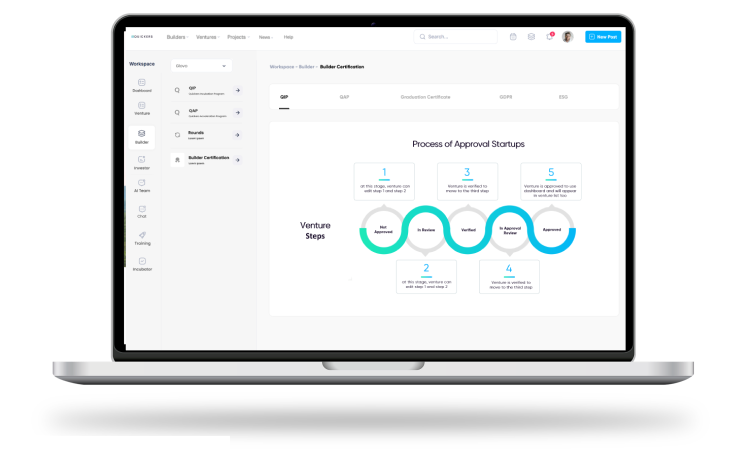Sales
Join and earn Quick AI Credits!
Sales
Join and earn Quick AI Credits!
Is your IT department burning through resources instead of driving value? You’re not alone. Our Expert Lean IT experts apply proven principles to eliminate waste, streamline processes, and transform IT operations into business drivers.
Lean IT is a journey that requires commitment and a clear strategy. With the right guidance and resources, navigating this transformation can lead to long-lasting success and a culture of continuous improvement.
Making progress in Lean IT depends on staying dedicated and defining a solid strategy. If you use the right resources and guidance, your team can adapt, grow and keep improving for a long time in your organization.
By using lean IT, IT teams can regain valuable time, resources and efforts to focus on serving the business and customers, since the team is no longer dealing with inefficiencies.
Organizations are each unique. Adjusting lean IT methods to match specific requirements allows for improvements that help the whole IT system and contribute to ongoing success.

Our professionals hold prestigious Green Belt, Black Belt, and Master Black Belt certifications from industry giants including General Electric, Airbus, and LVMH. These International Association for Six Sigma Certification (IASSC) accredited credentials ensure you receive world-class lean IT implementation backed by proven methodologies and real-world success.
Transform your understanding of IT processes through detailed value stream mapping. Our certified experts identify every step in your IT workflows, pinpointing waste, bottlenecks, and improvement opportunities. This foundation enables targeted lean information technology implementation that delivers immediate impact.
Leverage proven lean IT principles to eliminate the eight types of waste plaguing IT departments: waiting, overproduction, rework, motion, transportation, inventory, over-processing, and unused talent. Our systematic approach ensures sustainable improvements that compound over time.
Combine the power of lean information technology with Agile methodologies for software development excellence. Our integrated approach accelerates delivery, improves quality, and ensures continuous value delivery to your business stakeholders.
Build lasting transformation through cultural change. Our change management experts embed lean IT principles into your organization’s DNA, creating self-sustaining improvement cycles that evolve with your business needs.
A wide array of flexible features can guide the lean IT transformation, ensuring that each step contributes to greater efficiency and value.
A well-structured Lean IT journey, powered by proven methodologies and deep industry expertise, ensures that IT operations are optimized to meet the demands of today’s business landscape.
Understanding and optimizing IT value streams is crucial. A detailed approach to mapping and analysis ensures that all processes contribute effectively to the organization’s success.
Eliminating inefficiencies and enhancing process efficiency creates a leaner, more effective IT operation. This, in turn, drives real value across the organization.
Combining Lean IT with Agile development methodologies makes software development processes more responsive, efficient, and aligned with evolving business needs.
Embedding Lean principles into the IT culture fosters a mindset of continuous improvement, which can lead to transformative and lasting benefits for the organization.
Continuing to support and optimize Lean IT initiatives ensures they evolve and grow with the business, leading to sustainable success and long-term efficiency gains.
Straight forward pricing plans designed to suit teams of any size.
Lean IT applies proven manufacturing principles to information technology processes, focusing on eliminating waste, improving efficiency, and delivering maximum value to your business. Organizations typically see 20-40% cost reductions and significant performance improvements within the first year..
Our professionals hold internationally recognized certifications from these industry leaders, accredited by the International Association for Six Sigma Certification (IASSC). This ensures our lean information technology methodologies are grounded in real-world experience and proven best practices from complex, high-stakes environments.
Absolutely. Lean IT principles complement and enhance existing methodologies. We specialize in creating integrated approaches that leverage the strengths of Lean, Agile, and Six Sigma to deliver comprehensive process improvement and operational excellence.
Most organizations see immediate improvements within 30-60 days of implementation, with substantial results typically achieved within 90 days. Long-term benefits continue to compound as the lean information technology culture becomes embedded in your organization.
We focus heavily on cultural transformation and capability building. Our approach includes training internal champions, establishing continuous improvement processes, and creating measurement systems that ensure lean IT principles become part of your organizational DNA.
Lean IT identifies and eliminates various types of waste in IT processes, such as underutilized resources, redundant systems, and inefficient workflows. This approach leads to cost savings, improved efficiency, and enhanced service delivery.
Our certified professionals start by mapping existing IT processes, identifying areas of waste, and applying Lean principles to streamline operations. The approach is tailored to each organization’s needs, ensuring that the implementation is both effective and sustainable.
Our Lean IT professionals have worked with a range of industries, including manufacturing, aerospace, and luxury goods, through partnerships with General Electric, Airbus, and LVMH. This diverse experience enables us to apply best practices and innovative solutions across various sectors.
Yes, Lean IT can be effectively integrated with Agile and Six Sigma methodologies. This integration enhances process efficiency, improves quality, and accelerates time-to-market, providing a comprehensive approach to IT management and development.
The first step is to conduct a value stream mapping of your current IT processes to identify waste and inefficiencies. From there, applying Lean IT principles involves streamlining workflows, implementing continuous improvement practices, and focusing on delivering maximum value to the business.
Don’t wait, your competitors are already implementing lean information technology solutions. Start your transformation today and join the leaders who are turning IT operations into competitive advantages.
Don’t let inefficient IT processes continue draining your resources and limiting your growth potential. Join the hundreds of organizations that have already transformed their operations through our proven lean IT methodologies.

See how Quickers Venture Builder drives innovation with advanced Deep Tech Infrastructure

Découvrez comment Quickers Venture Builder stimule l’innovation grâce à une infrastructure Deep Tech avancée.